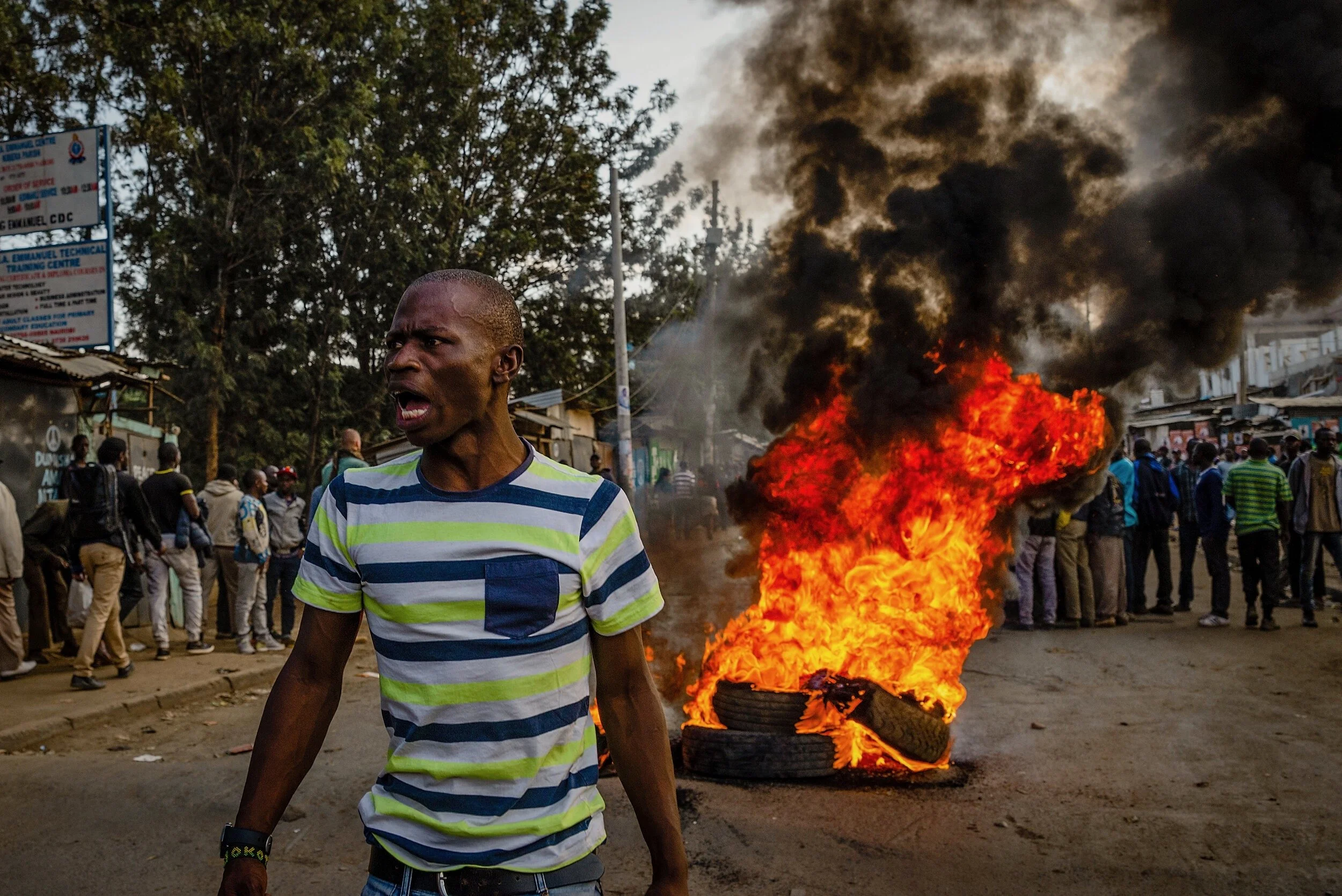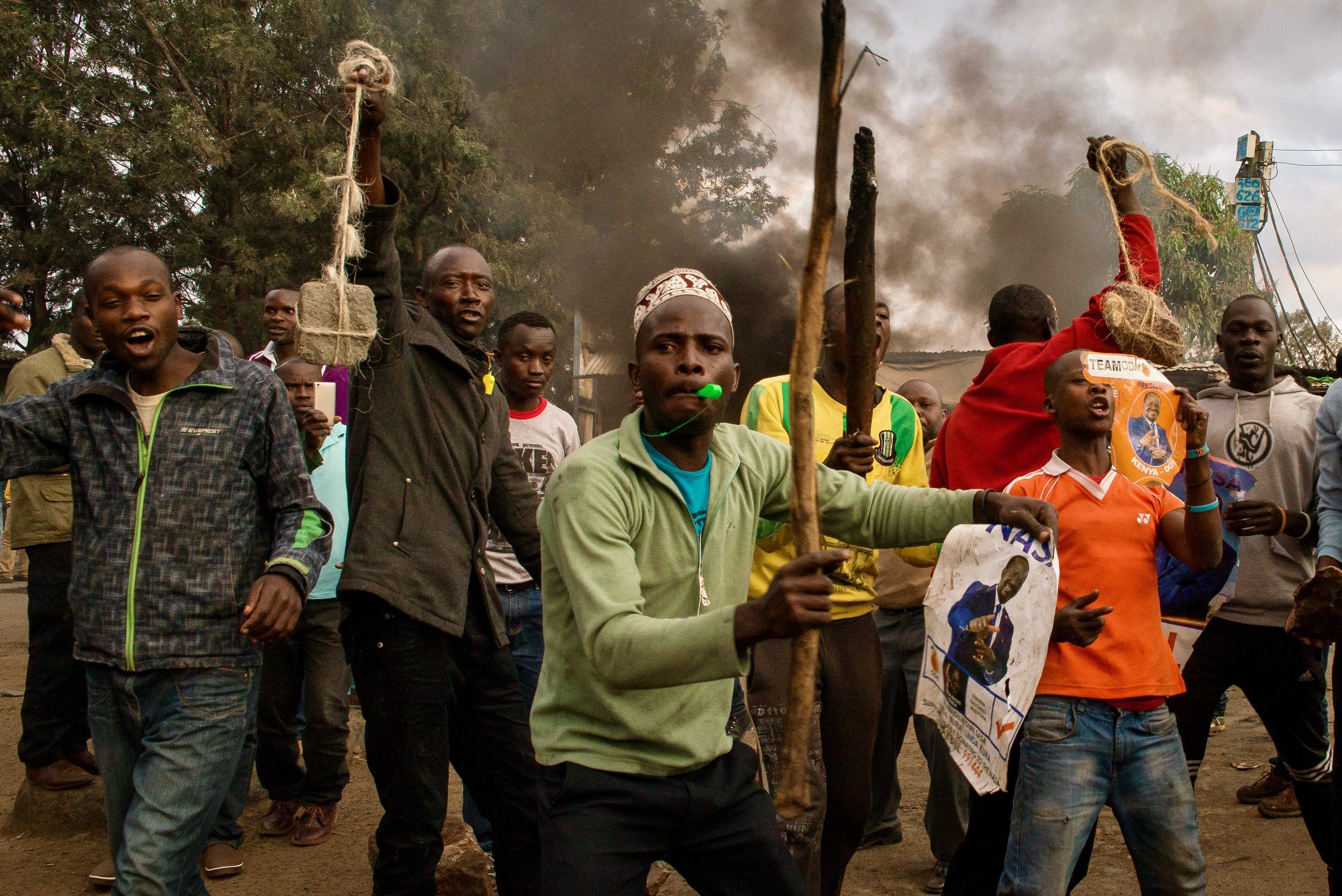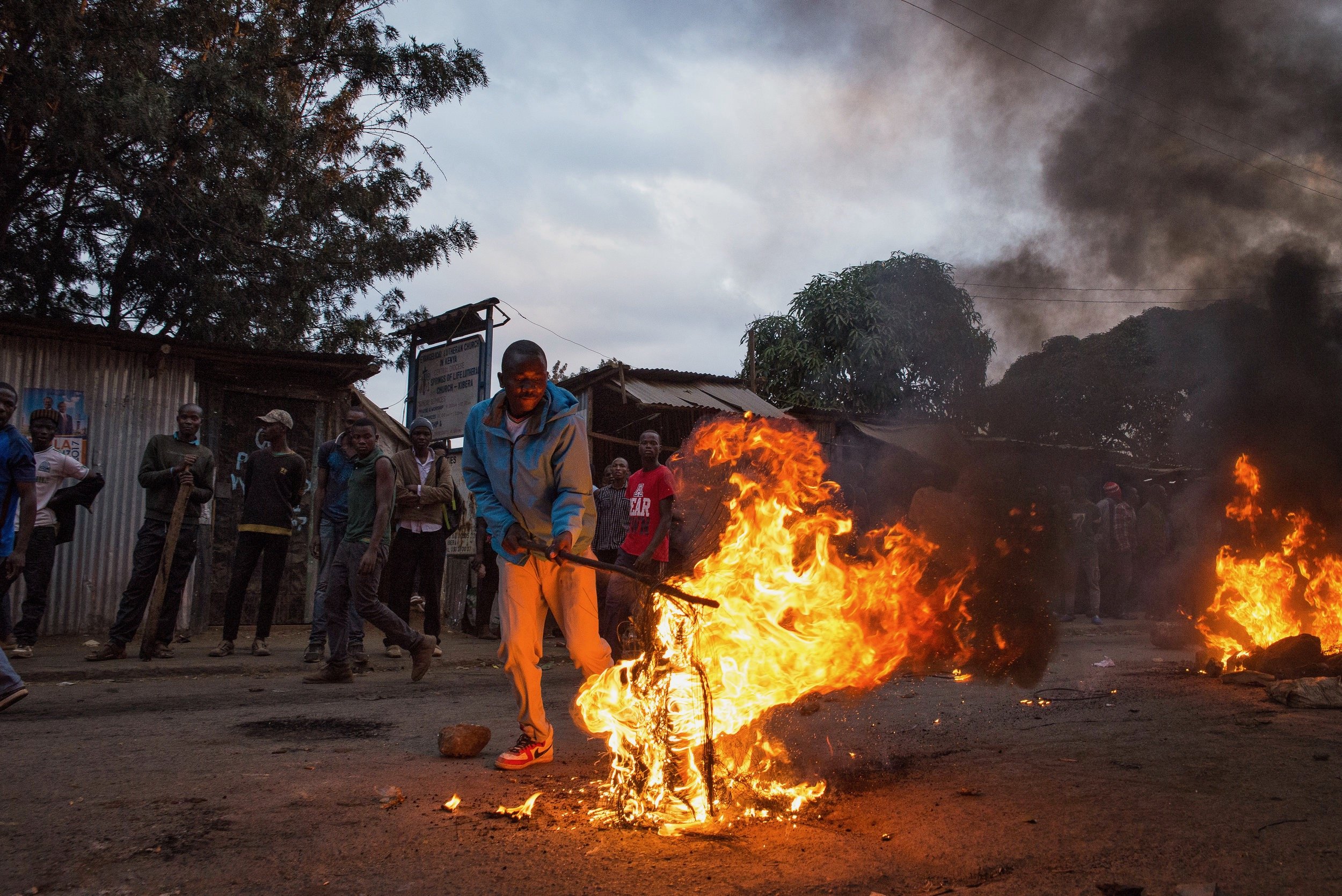As results show an incumbent victory, Kenya protests turn deadly
Violent demonstrations erupted across Nairobi, just one day after Kenyans elected their next president.
Public Radio International
“Uhuru must go!” yells a demonstrator in Kibera, an informal settlement in Nairobi, Kenya. The man blamed current President Uhuru Kenyatta for the lack of jobs and widespread poverty in the area, and demanded that the President step down from office.
Photo: Katie G. Nelson
Nairobi, Kenya - Violent demonstrations erupted across Nairobi Wednesday afternoon, just one day after Kenyans elected their next president.
Wednesday’s protests were fueled by ethnic and political divisions between longstanding rivals President Uhuru Kenyatta and opposition party candidate Raila Odinga.
Elections officials have yet to announce an official winner of the contentious race — a delay that has added to suspicions of voting rigging and instigated protests around the East African nation. Unofficial results, however, point to a decisive victory for Kenyatta.
Kenyan police teargassed protesters in the western region and shot dead two in in the capital Wednesday afternoon.
This is Odinga’s fourth and likely final attempt to take the presidency. In 2007, he ran and lost against Mwai Kibaki, setting off a fire of ethnically motivated killings that left as many as 1,500 people dead. Many feared similar violence after this election, though so far things have been more muted.
The stakes are high in Kibera, an informal settlement in Nairobi and opposition party stronghold. There, accusations of vote rigging and election fraud are common, leaving the large population of unemployed, young men angry at the seemingly skewed political process.
For them, this is not just another election. It is a continuation of injustice and marginalization by tribal identity.
They say they have nothing else to lose. “It is our time to eat,” they said.
Men arm themselves with stones and clubs before clashing with residents in Kibera, an informal settlement in Nairobi, Kenya. The men supported presidential candidate Raila Odinga of the National Super Alliance over current President Uhuru Kenyatta.
Photo: Katie G. Nelson
A man holds a large stone during a protest in Nairobi, Kenya.
Photo: Katie G. Nelson
Demonstrators light tires on fire in Nairobi’s informal settlement of Kibera. The demonstration quickly turned violent as demonstrators armed themselves with stones and clubs bearing nails Wednesday evening.
Photo: Katie G. Nelson
A man holds bullet casings marked with the Kenya Defense Force (KDF) stamp in Nairobi, Kenya. KDF is an umbrella agency consisting of the Kenya’s Army, Navy and Airforce. Agencies within KDF have been accused of human rights abuses including extrajudicial killings of civilians during countrywide elections.
Photo: Katie G. Nelson
Men yell “Uhuru must go!” during a demonstration in Kibera, an informal settlement of Nairobi, Kenya. Many of the residents support Raila Odinga of the National Super Alliance over current President Uhuru Kenyatta.
Photo: Katie G. Nelson
Men watch demonstrators light tires on fire in Nairobi’s informal settlement of Kibera. The demonstration turned violent as demonstrators armed themselves with stones and clubs bearing nails Wednesday evening.
Photo: Katie G. Nelson
A man holds a campaign poster for presidential candidate Raila Odinga of the opposition party in the Kibera neighborhood of Nairobi, Kenya. Protesters were demanding that current President Uhuru Kenyatta concede to presidential candidate Raila Odinga of the opposition party.
“We don’t care what happens to us. It’s our time to eat!” they yelled.
Photo: Katie G. Nelson








